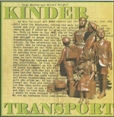| |
|
By Harriet Kessler (Woodbury Heights, NJ)
We were probably the first girls– Susan Fuld and I–to be bat
mitzvahed in all of Rego Park, NY.
It was 1946, and our shul, the Rego Park Jewish Center, was a storefront across
from the public library on Booth Street.
I don’t remember the rabbi’s name. And I don’t remember anything about the
ceremony. I do recall that Susan and I prepared for and went through the ritual
together, and that of all the 12-year-old Jewish girls in P.S. 139, we were the
least likely bat mitzvah candidates.
Both of our families were ideologically secular.
Susan’s parents, middle-class intellectuals, were college educated civil
servants who read The New York Sun at night. Her father, an accountant, and her
mother, a grade-school teacher– Zionists who made aliyah some seven years
later when the House Un-American Activities Committee came calling–believed that
religion was the opiate of the people.
My parents, a self-taught plastics engineer and a housewife, were labor-oriented
high school graduates who read The New York World Telegram and were Workmen’s
Circle devotees. In fact, living in Far Rockaway before our move to Rego Park,
we could have doubled for the family that ate on Yom Kippur in Woody Allen’s
Radio Days.
Despite our parents, Susan and I went to synagogue.
Not that our parents objected. They simply looked at us incredulously when we
called for each other and trotted off to children’s services every Saturday,
questioning what we found so appealing about spending time in the synagogue.
I dreamed of becoming a writer and a singer, and shul meant stories and music.
David and Goliath, Samson and Delilah, Noah. Such high drama! I loved the Bible
stories because they were exotic and powerful. And I loved the songs–David
Melech Yisroel, Hine Ma Tov, Shalom Alecheim, Ein
k’Eloheinu–that let me show off my high notes as I sang at the top of my
lungs.
Shul also meant celebration. The best was Simchat Torah which I so
enjoyed that my mind’s eye often returns to a chubby little girl in a sailor
dress and brown oxfords, her black corkscrew curls bouncing as she parades with
all of Jewish Rego Park (except for Susan’s parents and mine), dancing down the
center aisle of the old Jewish Center.
But if we went to shul despite our parents, we prepared for our bat
mitzvah because of them.
For Susan– and it was all her idea–the Jewish rite of passage was intended to
help her parents bear the pain inflicted by her older sister.
Dorothea, Susan’s senior by seven years, had married a Catholic boy, graduating
from high school and eloping the next day with him before his Army unit left for
Europe. Secular or not, her parents were devastated.
I never questioned why Susan’s performance of a ritual that was meaningless to
her parents would help matters. But I took her word that becoming a bat
mitzvah would assure her folks that they still had one Jewish daughter.
For me, though, the bat mitzvah meant atoning for my father’s sins.
I knew–even at 12–that my father had battled his temper all his life, usually
without success except where his family was concerned. When I was eight, for
example, we’d moved from Far Rockaway because of his shame following a 3 a.m.
arrest. (The police car’s screaming siren had alerted all the neighbors.) His
crime? Socking the arresting officer’s brother-in-law in a fit of road rage.
But, more significantly, my dad’s 13th year had come and gone sans bar
mitzvah because of his lack of control. Like the young boy in “The
Conversion of the Jews,” an early Philip Roth story, my father was the thorn in
his cheder rebbe’s flesh. Taking nothing on faith, continually
interrupting the class with a relentless stream of questions, he eventually
provoked the rabbi into striking him with a stick.
Where Philip Roth’s protagonist responded to his rabbi’s blows by screaming,
“You don’t hit over God,” running from the schoolroom onto a rooftop, and
threatening to jump unless all the Jews converted, my father simply hit the
rabbi back–and ended his own Jewish education.
To my young mind, his missing out on a bar mitzvah meant that he wanted
for Jewish legitimacy. I decided that he needed validation and that I needed it,
too.
Was my father pleased? I don’t remember. Was I less isolated? I don’t recall
that either. If I was, the feeling didn’t last.
Looking back, though, the bat mitzvah seems like a milestone in my
unending struggle to be a good Jewish-American.
It was my first act of atonement, and, possibly, my most genuine–a touchstone
that I return to year after year.
Harriet Kessler, whose first love is short story writing, is long time editor
of The Jewish Community Voice of Southern New Jersey and Attitudes Magazine. You
can read her work at
www.jewishvoicesnj.org
|
|
|




 Bottom
Bottom













 Printer
friendly page
Printer
friendly page